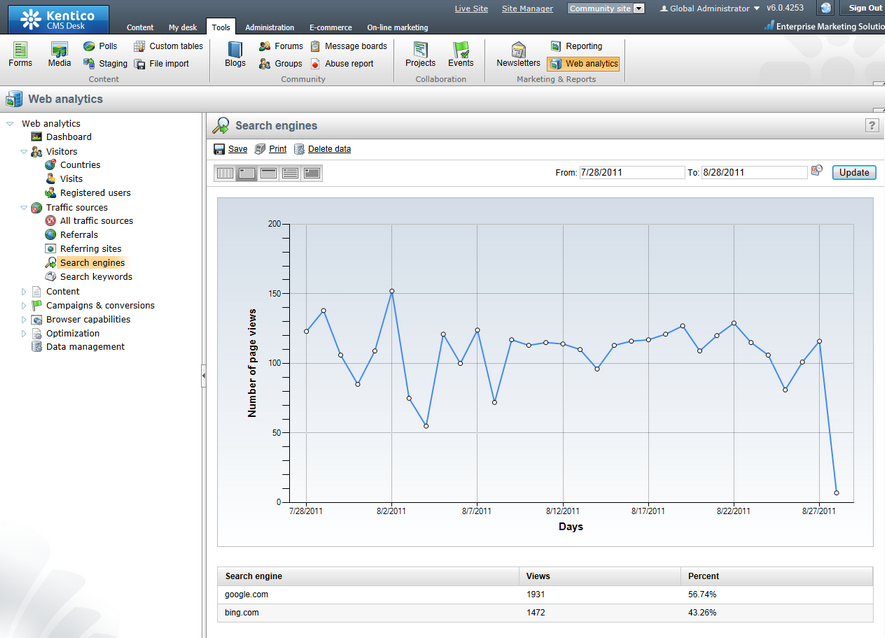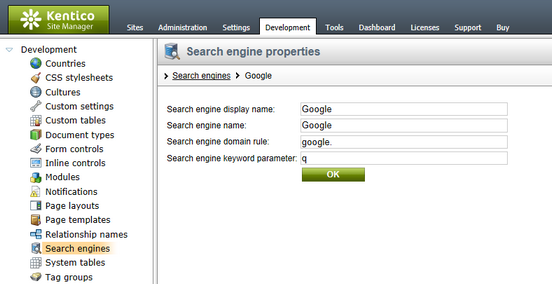Monitoring traffic from search engines |

|

|

|

|
|
Monitoring traffic from search engines |

|

|

|

|
|
|
||
Search engine tracking allows you to monitor the amount of page views received from visitors who found the website using a search engine. Since search engines are the most common type of referring websites, they are tracked separately and with additional details.
The report containing this data can be found in the web analytics tree menu in Traffic sources -> Search engines. As shown below, it contains a graph showing the total amount of page views caused by search engine traffic and a breakdown of the statistics for individual search engines.

Additionally, it is possible to view the specific keywords that were entered into the search engines using the Search keywords statistic (also under the Traffic sources category).
In order to correctly log incoming traffic from search engines, objects representing individual engines must be defined in the system. This can be done in Site Manager -> Development -> Search engines. By default, the list contains some of the most commonly used search engines, but any additional ones that you wish to track must be added manually.
When creating or editing (![]() ) a search engine object, the following properties must be specified:
) a search engine object, the following properties must be specified:
•Search engine display name - sets the name of the search engine used in the administration and web analytics interface.
•Search engine name - sets a unique identifier for the search engine.
•Search engine domain rule - this string is used to identify whether website traffic originates from the given search engine. In order to work correctly, this string must always be present in the engine's URL, for example google. for the Google search engine.
•Search engine keyword parameter - specifies the name of the query string parameter that the given search engine uses to store the keywords entered when a search request is submitted. This is necessary so that the system can log which search keywords visitors used to find the website.

If the site is accessed from an external website, the URL of the page that generated the request is parsed. First, it is checked for the presence of a valid Search engine domain rule that matches the value specified for a search engine object. Then the query string of the URL is searched for the parameter defined in the corresponding Search engine keyword parameter property to confirm that the referring link was actually generated by search results, not by a banner or other type of link. This way, website traffic that is gained from search engine results can be accurately tracked.